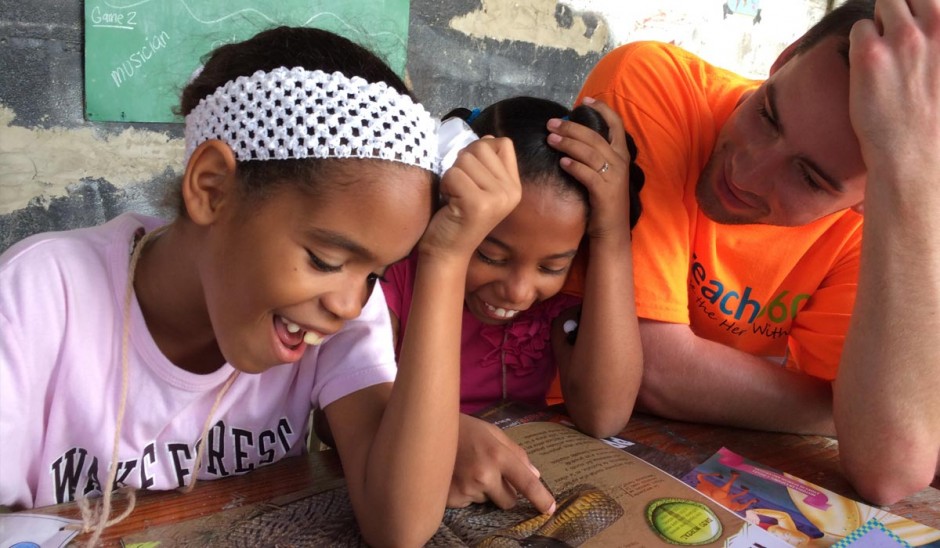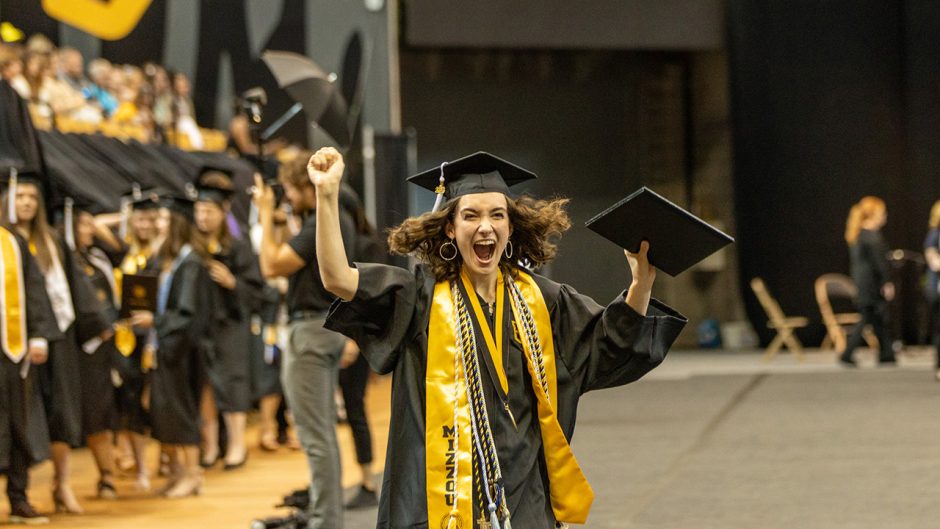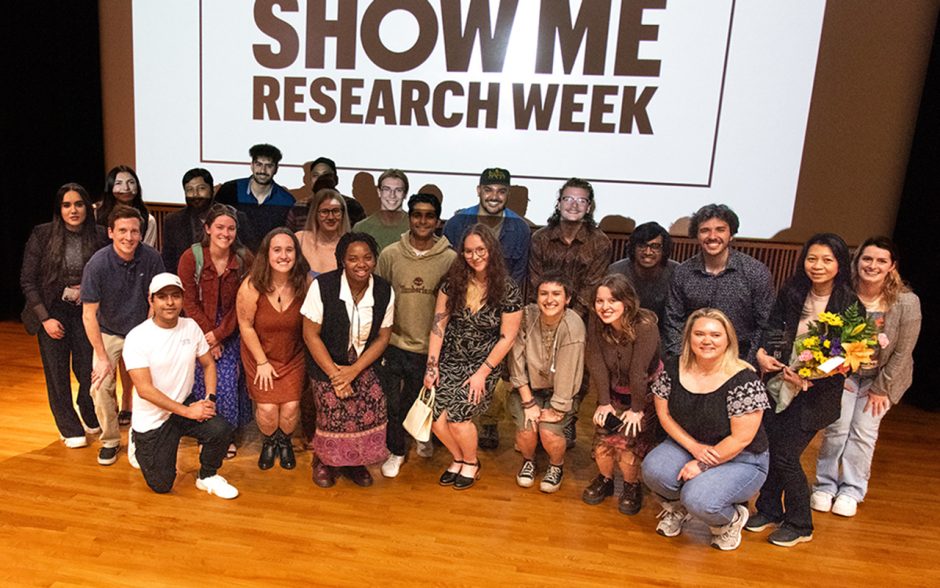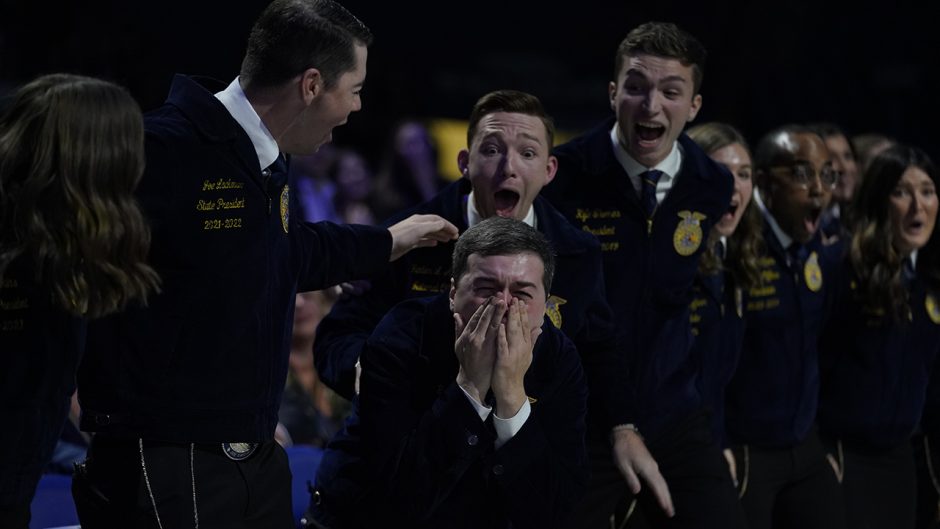
John Belgeri, a senior health sciences major, helps two girls practice their Spanish and English reading skills at the Outreach 360 Salomón Jorge Learning Center in the Dominican Republic. Mizzou Alternative Breaks partners with Outreach 360, a nonprofit with a focus on literacy, to help run its international trips.
This winter break, 144 MU students loaded into 20 rental vans, each with a tiger tail hanging from the back bumper, and headed for cities in Virginia, Louisiana, Texas, Florida, Alabama, South Carolina and Oklahoma.
The students weren’t driving home for the holidays (yet); they were en route to a week of service as part of the Mizzou Alternative Breaks program.
The program, which began as a student organization in 1991, sends students to communities across the country (and sometimes out of the country) to perform volunteer service. That might look like cleaning brush from the grounds of a big-cat rescue sanctuary, spending time at a children’s shelter or maybe laying subfloor in a Habitat for Humanity house.
Students apply for trips based on the service they want to do, and the locations of the trips are a secret until the applicants have been accepted. Each trip typically has 10 participants and two site leaders, who go through almost a year of training to plan their trips and learn how to find community partners, make a budget, raise funds, keep participants safe and solve problems on the fly.
“We take two Mizzou students and say, 'Here are 10 other Mizzou students,'” says Bryan Goers, coordinator of leadership and service for the Department of Student Life. “'You have a budget of whatever you decide to make it. You’re going to go find a site, find an issue, make contacts in that region, and we’ll give you two vans.' And it’s like … go.”
Before the trips begin, each group meets for pre-trip service in Columbia.
During their trips, students tweet and blog about the work they do, the relationships they build and what they learn.
>In demand
In 2009, Alternative Spring Break application numbers started growing (thanks largely to word of mouth), and the program did its best to meet the demand.
Organizers added winter break trips, international trips to the Dominican Republic and Nicaragua, a Thanksgiving trip, a weekend trip to Kansas City and a collaborative project with other SEC schools.
In spring 2009, there were just 88 participants and eight trips. This past spring break, more than 400 students participated in 36 trips.
This year, about 850 students will embark on 69 trips. Almost 1,600 students applied for those 850 spots.
The program is on track to be the largest of its kind in the country (it’s currently the fourth-largest program) and the first program to send more than 1,000 people on trips in a year.
Goers says the goal is to send as many students who want to serve as possible.
“It never ceases to amaze us,” he says. “We go in the next year and say ‘Aw, man, do you think we can get this many applications?’ and it gets blown out of the water. I think part of it is that Mizzou is a community that wants to give back.”
Serve; don’t help
The program stresses seven principles to its participants and site leaders. One of the most talked-about is “serve; don’t help.”
“We don’t go in with the mentality that we’re going to impart our wisdom on a community,” Goers says. “We know that community is going to teach us as much as they’re getting out of it.”
Other principles include “be Gumby,” which stresses flexibility, and “bring it home,” which reminds participants to bring what they learn back to MU.
Many students have done just that.
Several student organizations were started by participants, including the Mizzou Unity Coalition, which advocates accessibility for people with disabilities, and Mizzou Pinwheels for Prevention, part of a national campaign for child-abuse prevention.
Students come back from trips with new perspectives and sometimes, Goers says, a new path to follow.
“We have people that go on these trips that have these amazing experiences,” he says. “They come back and change their majors, or at least they’re exposed to other and cultures and issues you don’t see here in Columbia.”
SEC country
Since Mizzou became part of the SEC, more trips are heading southeast.
This spring, one community partner, Habitat for Humanity of Northwest Alabama in Guin, Ala., will play host to the SEC Compact, a collaboration among Mizzou, Auburn, University of Florida and University of South Carolina that was created by Mizzou.
Each school will send students during its designated spring break, adding up to four consecutive weeks of service on one project.
Volunteers can accomplish a lot in four weeks, as the organization’s resource director, Teressa Clark, knows firsthand. After tornadoes ripped through the area in 2011, Habitat volunteers were able to build four new homes in two weeks.
“That proved to us what we could do, so we know we’re going to be able to accomplish a lot when the students are here.”
Clark hopes she can make the project fun and maybe a little competitive.
She encourages volunteers to learn as much as they can while they serve.
“We learn more about ourselves when we take our eyes off ourselves and put them on others around us,” she says.
Mizzou first made contact with Habitat for Humanity of Northwest Alabama in 2012 when a site leader called Clark and explained that she wanted to bring an Alternative Break trip to Guin, which is more than an hour away from Birmingham and Tuscaloosa.
“Are you sure you have the right Habitat?” Clark asked her. “We’re very rural.”
That first trip to Guin was not the last, and some participants have stayed in touch with Clark, whom they affectionately call Mama T.
This past spring, she even made her first trip to MU with her family.
"It is more than just a group of kids coming to work," Clark says. "These young men and women give me so much hope. In a world that seems so cold and chaotic at times, I can see our future leaders in them and the love, compassion and desire to change the world around them for the better gives me that hope."
Site leaders determine trip locations based on the community partners they want to work with. Once the trips are planned, participants apply for the type of service they want to do, and the locale is a mystery until they're accepted. More information about where MU Alternative Breaks has traveled »




